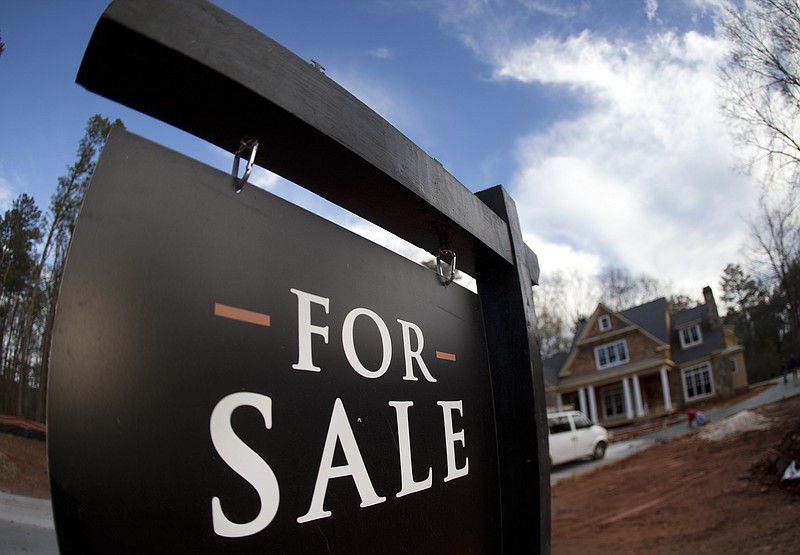Chattanooga home prices and sales edged higher again last month despite a drop in sales nationwide.
The Greater Chattanooga Association of Realtors said Tuesday that November home sales through its multiple listing service rose 2 percent from a year ago to 575 homes.
By the numbers
› 8,003: Number of homes sold in the first 11 months of 2015, up 11.2 percent from a year ago. › $176,432: Median sales price of homes sold last month in Chattanooga, up 5.3 percent from a year ago › $220,300: Median sales price of homs sold nationwide, up 6.3 percent from a year ago Sources: Greater Chattanooga Assocation of Realtors, National Association of Realtors
The median sales price of homes sold rose even more, climbing to $152,750 in the Chattanooga region.
Such gains are helping make 2015 the best year for home sales in Chattanooga since before the 2008-2010 recession with more than 8,000 homes sold already this year in Chattanooga.
Despite the higher sales price in Chattanooga last month, the local price of homes still remained 30.7 percent below the U.S. median sales price of $220,300 in November.
Nationwide, the National Association of Realtors said November home sales were down 10.5 percent as buyers faced rising prices and new regulations that might have delayed some closings. The seasonally adjusted annual rate of 4.76 million homes was the weakest pace in 19 months for the U.S. as a whole
The setback follows solid gains in real estate for much of 2015. Sales of existing homes are on track to rise roughly 5 percent for the entire year. But the introduction of a new disclosure form in October likely prevented many homebuyers from closing on sales in November.
Lawrence Yun, NAR chief economist, says multiple factors led to November's sales decline, but the primary reason could be an anomaly as the industry adjusts to the new Know Before You Owe rule.
"Sparse inventory and affordability issues continue to impede a large pool of buyers' ability to buy, which is holding back sales," he said. "However, signed contracts have remained mostly steady in recent months, and properties sold faster in November. Therefore it's highly possible the stark sales decline wasn't because of sudden, withering demand."
The new rules introduced by the Consumer Financial Protection Bureau to inform homebuyers about interest rates and fees may have delayed the completion of sales last month. It took 41 days to close a sale in November, compared to 36 days a year ago. The extended timeframe means that some sales may have been pushed back into December.
"The effect should be a one-time hit to the data and we expect the uptrend in sales to get back on track next month," said Jim O'Sullivan, chief U.S. economist at High Frequency Economics.
Still, an improving job market and relatively low mortgage rates have encouraged home-buying for this year. Unemployment at a healthy 5 percent has endowed more people with a sense of financial certainty.
In Chattanooga, the improved real estate market has cut the average number of days that homes are on the market from 111 days a year ago to only 68 days last month. The inventory of homes on the market in Chattanooga totaled 4,065 in November, down 26 percent from a year ago, as higher sales over the past year have reduced the number of homes for sale.
A shortage of inventory has restricted options for buyers and fueled escalating prices. As a result, more people have no choice but to rent. The share of homeowners has slipped to 63.7 percent from a high of 69.2 percent in 2004.
Low mortgage rates have minimized some of the financial pressure. Still, rates are higher than a year ago. The Federal Reserve hiked a key short-term rate last week, the first increase of its kind in nearly a decade as the economy appears solid enough to manage higher borrowing costs.
The average, 30-year fixed mortgage rate has risen to 3.97 percent from 3.8 percent a year ago, according to mortgage buyer Freddie Mac.
